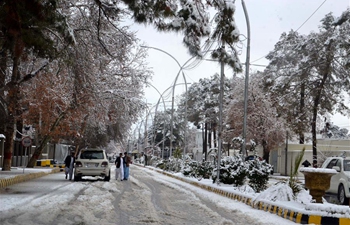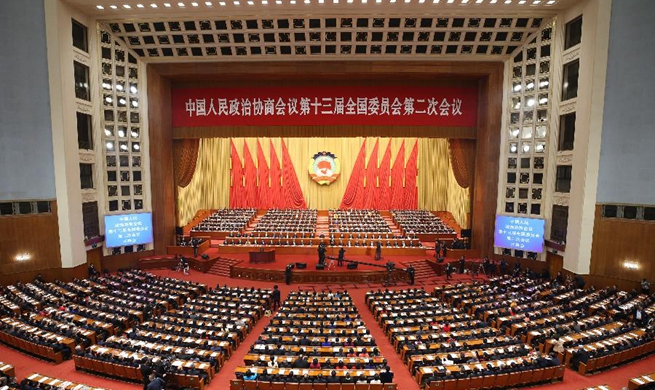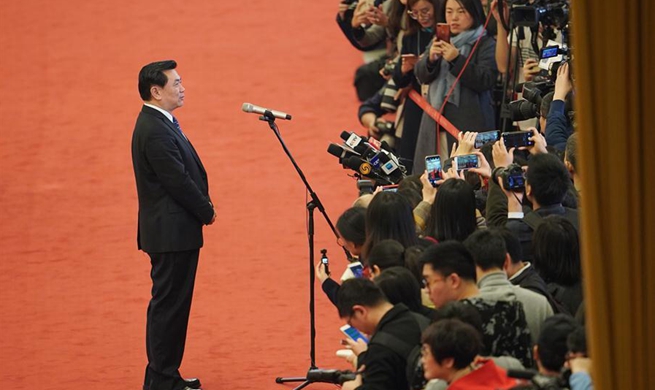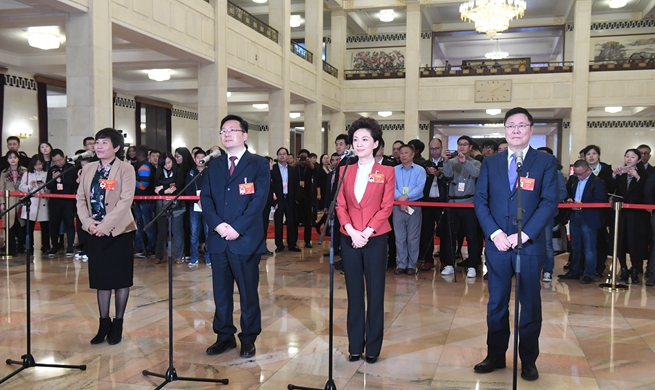ADEN, Yemen, March 3 (Xinhua) -- British Foreign Secretary Jeremy Hunt arrived on Sunday in Yemen's southern port city of Aden for the first time for talks with high-ranking government officials, a government official told Xinhua.
The government source said on anonymity that Hunt landed at Aden's International Airport and headed to the presidential compound to meet Prime Minister Maeen Abdulmalik and other high-ranking government officials.
"A number of government officials and military leaders received and welcomed the British foreign secretary at Aden's airport," the source said.
This is Hunt's first trip to the war-ravaged Yemen where he will concentrate on discussing efforts to reduce humanitarian crisis, pushing for more de-escalation and achieving peace in the strategic port city of Hodeidah, the Yemeni source added.
Another source based in Aden said that "the British foreign secretary might conduct unannounced meetings with representatives of different factions in Yemen."
On Saturday, Hunt held a meeting with Yemen's President Abd-Rabbu Mansour Hadi in Saudi Arabia's capital of Riyadh to discuss the "fragile" progress.
"There is a lack of trust and it is taking too long to implement Stockholm Agreement but no one has a better plan so we need to get going and end the crisis," Hunt said in his Twitter account.
A day earlier, Hunt tweeted that he met Houthi spokesman Mohammed Abdulsalam in Oman and told him "withdrawal of Houthi troops needs to happen soon to maintain confidence in Stockholm and allow opening of vital humanitarian channels."
The warring parties reached the peace deal in Stockholm last December. They have largely held the cease-fire deal in Hodeidah since it went into force on Dec. 18.
However, both warring sides have since delayed the implementation of troops' withdrawal for several times.
According to the deal, the troops' mutual withdrawal should go through two timeline phases starting from the ports of Ras Isa, Saleef and Hodeidah's main port, which are under rebel control, and concluding with full withdrawal from inside and around the city.
Saudi Arabia is leading an Arab military coalition that intervened in Yemen in March 2015 to support the government of Hadi after Houthi rebels forced him into exile and seized much of the country's north, including the capital Sanaa and Hodeidah port city.
The four-year civil war has killed more than 10,000 people, mostly civilians, displaced 3 million others, and pushed the country to the brink of famine.
















